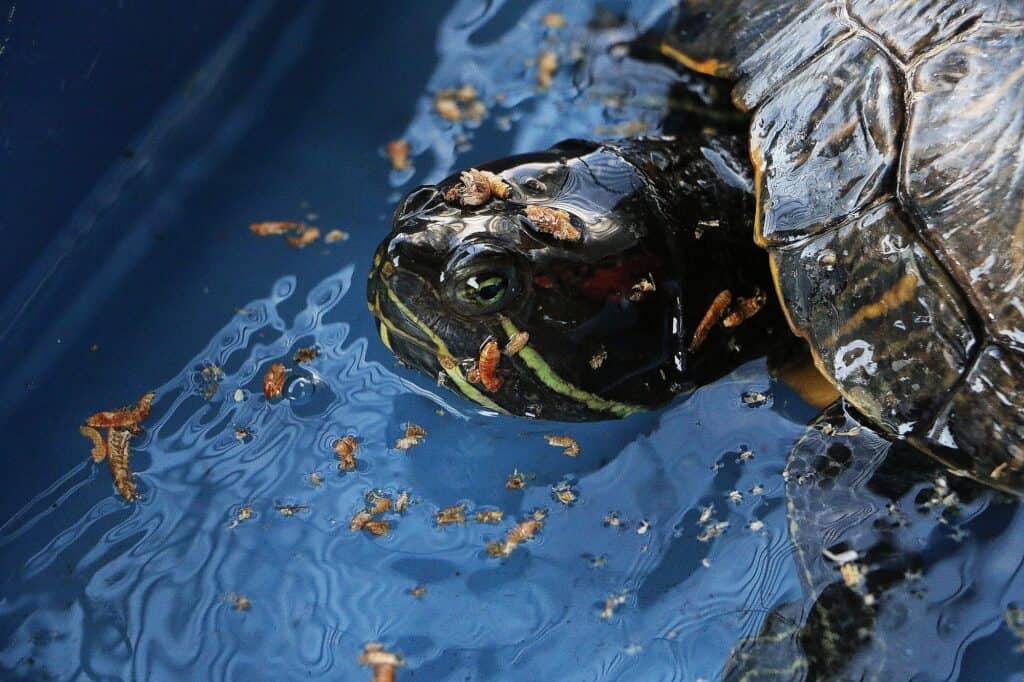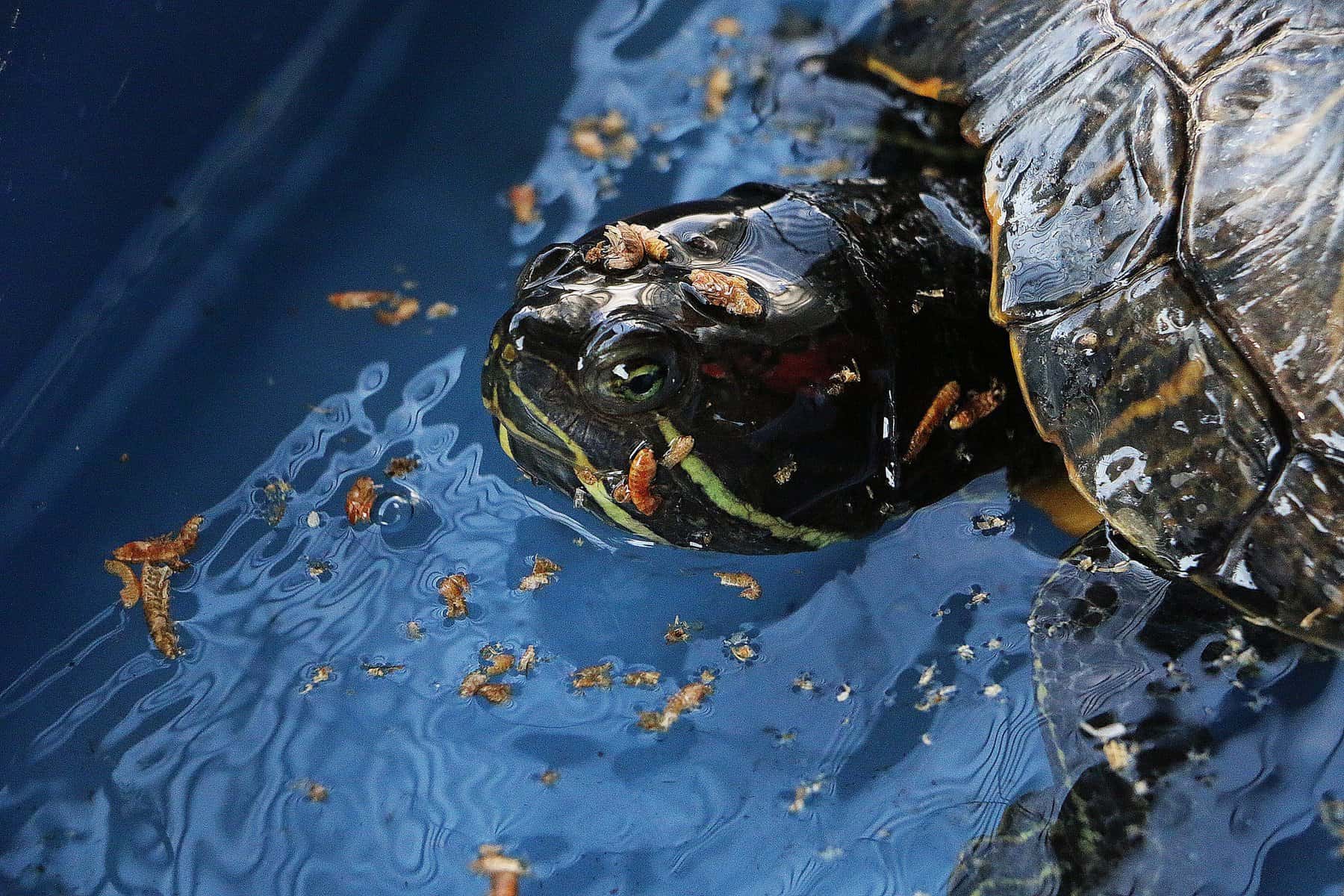Can turtles eat betta fish food? If you find yourself in a situation where your turtle is munching on your betta fish’s food for breakfast, it’s okay! You can take a deep breath and blame the lack of coffee.
The Facts
While it won’t harm a turtle to eat betta fish food (or most of any fish food) in small quantities, it isn’t a good idea to feed them with it regularly. This is because of the vastly different dietary needs of turtles and fish.
Betta fish have simple digestive tracts in comparison to turtles. A turtle attempting to survive on a diet of purely betta fish food will not get the proper nutrients it needs to live a healthy and sustainable life.
What’s the Difference?
The difference between the diet of a betta fish and that of a turtle can vary greatly depending on the type of turtle. A turtle’s diet can range from dead animals to fruits and vegetables to pelleted food, and typically consists of a combination of all three.
According to PetMD, experts recommend feeding your turtle pelleted food that’s made specifically for turtles because it’s often more resistant to deterioration and better able to float. Pelleted food should make up roughly 25% of your turtle’s food.
The next 50% of your turtle’s diet should be fruits and vegetables. And no, you do not need to buy special ingredients, we’re talking common produce! Kale, carrots, zucchini, squash, berries, apples, and melons are all great ideas for your turtle. Just remember to shred anything you plan on feeding your turtle.
The Last 25% should be feeder fish or insects. This is a pretty simple one, it’s exactly what it sounds like – fish or insects that can be eaten by turtles.
Foods Turtles Should Avoid
While most fish food is okay for your turtle to eat, there is a list of foods that are toxic to turtles that all turtle owners should be aware of.
This list, put out by hartz.com includes dairy products, sweets containing chocolate, corn syrup, processed sugar, and salty food.
If your turtle consumes any of these foods it is extremely important to keep a close eye on them for the next couple of days. You should report any changes to a vet as high quantities of these foods are deadly to turtles.
Other Feeding Information
Unlike most pets, turtles take around seven years before they are considered adults! This is important because once a turtle reaches adulthood, its eating schedule changes drastically.
A guideline put out by turtleholic.com suggests that turtles aged one year and younger should be fed once a day. Turtles aged one through seven can be fed every other day, and turtles seven years and older only need to be fed once every third day.
However, this is not a firm rule. Other experts say that baby turtles can be fed up to three times a day and mature turtles up to five times a week.
You will know if you are feeding your turtle too much if there is still food floating in the tank an hour after it has been fed.
Don’t worry, though! Most food can be removed and fed to your turtle later.
Side Effects To Look Out For
So, how will you know if your turtle is getting all the nutrients it needs?
Luckily turtles have many built-in indicators of their health. The biggest indicator that a turtle is unhealthy is rapid growth. This is usually a sign of a poor diet and an indicator that the turtle is heading to an early grave.
Other indicators that a turtle may be unhealthy are its skin and shell color and the size of its head. Turtles with gray skin color, as opposed to green, are likely unhealthy.
For some species of turtles (typically those with solid-colored shells) a variation in colors can also be indicative of poor health.
Lastly, if a turtle has a head that isn’t in proportion with its body (usually a smaller head,) this is not a good sign.
Summary
In short, it is okay for turtles to eat betta fish food as long as they have consistent access to the foods they need.
The most important thing that you can do for your turtle is to provide them with a varied diet and stay diligent about avoiding foods that are harmful to them.
Remember, if you do have questions about your turtle or its eating habits it’s always best to consult a veterinary professional!

